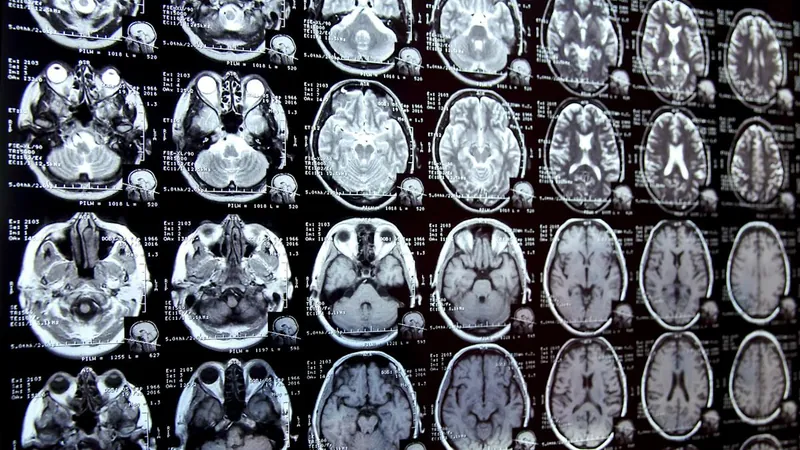
Shocking Discovery: Microplastics Found in Human Brains on the Rise!
2025-04-14
Author: Wai
A Disturbing New Reality
Plastic pollution has transcended oceans and beaches, infiltrating the very fabric of our beings. Recent research indicates that our brains could be housing the equivalent of five plastic bottle caps' worth of microplastics—an alarming find that poses great concern for our health.
The Groundbreaking Study
In a startling study from the University of New Mexico, scientists discovered that brain samples taken in 2024 contained nearly 50% more microplastics than those collected just eight years prior. The average human brain now holds about seven grams of plastic, equating to the weight of a disposable spoon.
Dementia and Microplastics
The findings take a darker turn with the revelation that brains of individuals with dementia had higher concentrations of microplastics. Researchers speculate this may be linked to a more porous blood-brain barrier, hindering the clearance of toxins. Alarmingly, microplastics have already been detected in the human placenta, bloodstream, and even newborns' first stools.
An Exponential Crisis
As plastic pollution spirals out of control, our own bodies mirror this alarming trend. Toxicologist Dr. Matthew Campen warned, "This stuff is increasing in our world exponentially," highlighting the severity of the issue.
The Health Risks
The ramifications of this plastic invasion are troubling. Although the exact threshold for harm remains unclear, preliminary research points to significant risks, including cognitive decline, reproductive issues, and disruptions to the immune system. Moreover, the contamination isn’t merely a futuristic concern—it’s a dire reality we're facing today.
Environmental Implications
Microplastics don’t just affect us—they seep into our ecosystems, threatening wildlife and the food supplies we depend on. This underscores that plastic pollution is not just a medical problem but a critical public health and environmental crisis with far-reaching global effects.
What’s Being Done?
Dr. Campen's team is actively researching whether specific regions of the brain that accumulate microplastics might be linked to disorders like Parkinson’s and memory loss. On a broader scale, nations like France, England, and India are implementing bans on common single-use plastics, while cities like Los Angeles and New York restrict harmful items such as Styrofoam and plastic bags.
Innovative Solutions
Researchers are hard at work developing more sustainable materials and exploring effective filtration methods for microplastics in our water supply. Meanwhile, individuals can make impactful changes: opt for reusable products, avoid heating food in plastic, or use laundry bags designed to trap microf fibers.
The Time to Act is Now
The shocking evidence of microplastics in our brains is a wake-up call. As we navigate this plastic crisis, it’s essential to take actionable steps—both at a personal and societal level—to protect our health and preserve our planet.



 Brasil (PT)
Brasil (PT)
 Canada (EN)
Canada (EN)
 Chile (ES)
Chile (ES)
 Česko (CS)
Česko (CS)
 대한민국 (KO)
대한민국 (KO)
 España (ES)
España (ES)
 France (FR)
France (FR)
 Hong Kong (EN)
Hong Kong (EN)
 Italia (IT)
Italia (IT)
 日本 (JA)
日本 (JA)
 Magyarország (HU)
Magyarország (HU)
 Norge (NO)
Norge (NO)
 Polska (PL)
Polska (PL)
 Schweiz (DE)
Schweiz (DE)
 Singapore (EN)
Singapore (EN)
 Sverige (SV)
Sverige (SV)
 Suomi (FI)
Suomi (FI)
 Türkiye (TR)
Türkiye (TR)
 الإمارات العربية المتحدة (AR)
الإمارات العربية المتحدة (AR)